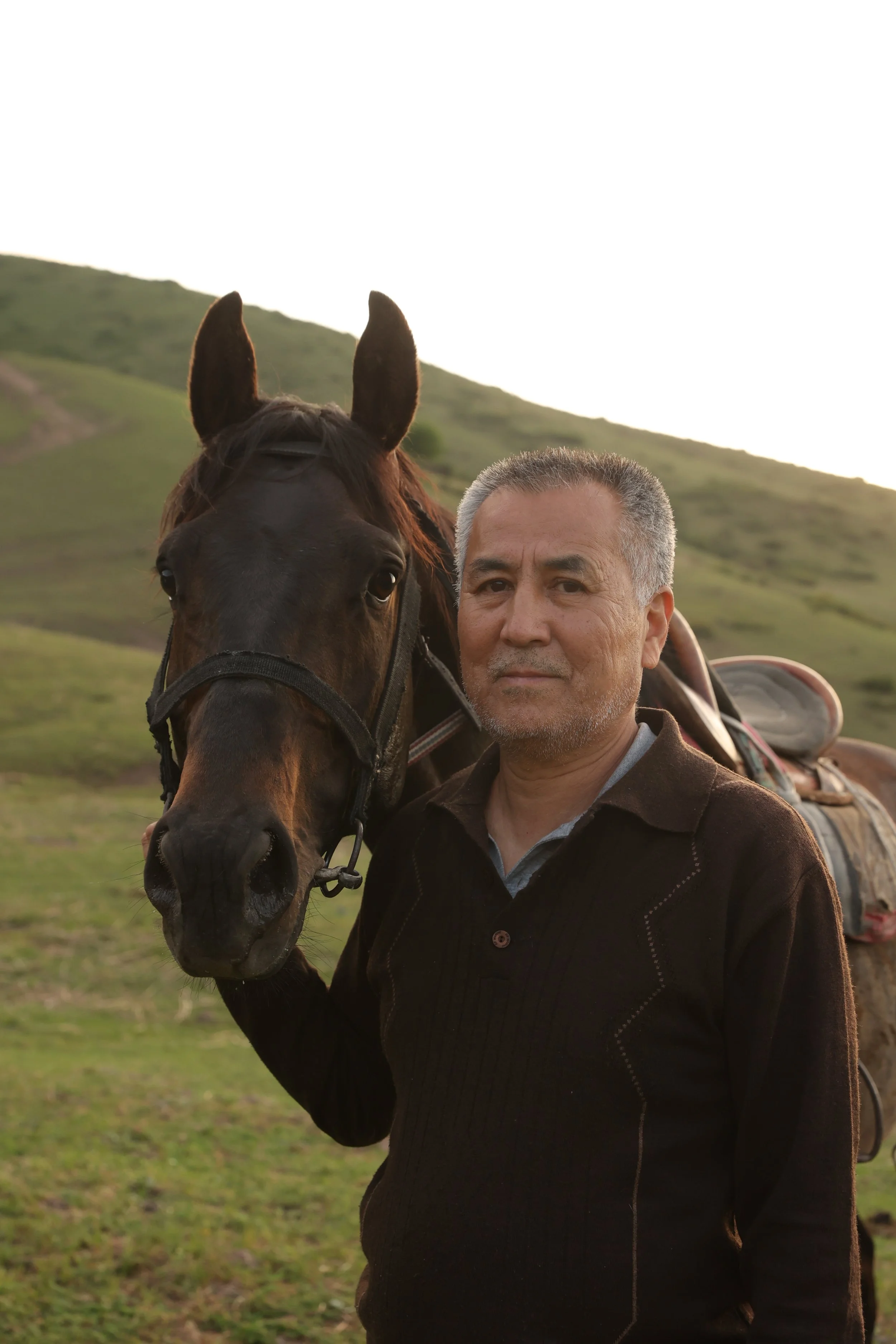SHAARBEK AMANKUL
(b. 1959) is an interdisciplinary artist based in Kyrgyzstan. He is known for his diverse use of media and conceptual research projects that delve into cultural identity, social change, and the intersection of traditional and contemporary art. He holds degrees from Frunze Art College (1980) and Kyrgyz National University (1989) and has been a fellow at several international art residencies. His work has been featured in numerous exhibitions, festivals, conferences, and symposiums globally.
Amankul’s earlier works reflect the social, political, and economic transitions in Central Asia after the collapse of the Soviet Union. His exploration of these changes—such as the formation of Kyrgyzstan’s national identity, political upheavals, and shifts in societal structures—focuses on transforming public spaces and their cultural significance. A central theme in his work is the merging of conceptual frameworks with traditional customs and nomadic practices. Amankul reinterprets these cultural aspects through critical, poetic lenses to address ecological, spiritual, and societal issues. His engagement with nomadic culture goes beyond a way of life, providing a conceptual framework for understanding movement, transformation, adaptability, and resilience, which are critical to addressing contemporary global challenges.
Since the early 2000s, Shaarbek Amankul has been actively exploring his unique creative path in art, experimenting with new, previously unexplored artistic forms related to contemporary art, and developing experimental projects focused on conceptual approaches. One such project is Б'Art Contemporary, a non-profit contemporary art institution founded in Kyrgyzstan in 2006. Designed to foster critical dialogue between Central Asian communities and the global art world, this initiative was the first in the country to integrate artistic and curatorial practices, significantly contributing to the region's cultural development and infrastructure while nurturing international artistic collaborations. A notable project of Б'Art Contemporary was the Bishkek Art Center, which operated from 2006 to 2011. It served as a vital platform for interacting with artists and cultural initiatives. It strengthened connections between the local art scene and the international community and played a key role in expanding Kyrgyzstan's cultural ecosystem.
Since 2011, Shaarbek Amankul's experimental projects have undergone significant evolution, culminating in the creation of the Nomadic Art project, also known as the 'Nomadic Art Camp,' initially conceived as a research initiative and later evolving into a conceptual endeavor through years of development. The project draws from the traditional nomadic way of life and indigenous cultural practices, integrating themes of art, politics, economics, and social processes into contemporary art. The project evolves each year, shifting its focus and geographical engagement to respond to global dialogues and emerging social realities. This adaptability enables the project to address challenges related to environmental sustainability, migration, heritage, identity, and biocultural diversity. By incorporating the spiritual and aesthetic dimensions of nomadic and indigenous cultures, the Nomadic Art project fosters a deeper understanding of societal, environmental, and cultural connections while encouraging critical reflections on contemporary art’s role. The shift from a research initiative to a conceptual project reflects its evolving capacity to address complex global challenges and engage in cross-border collaboration. The project explores how art can catalyze societal transformation, acting both as a mirror to reflect societal change and as a tool for transformation.
